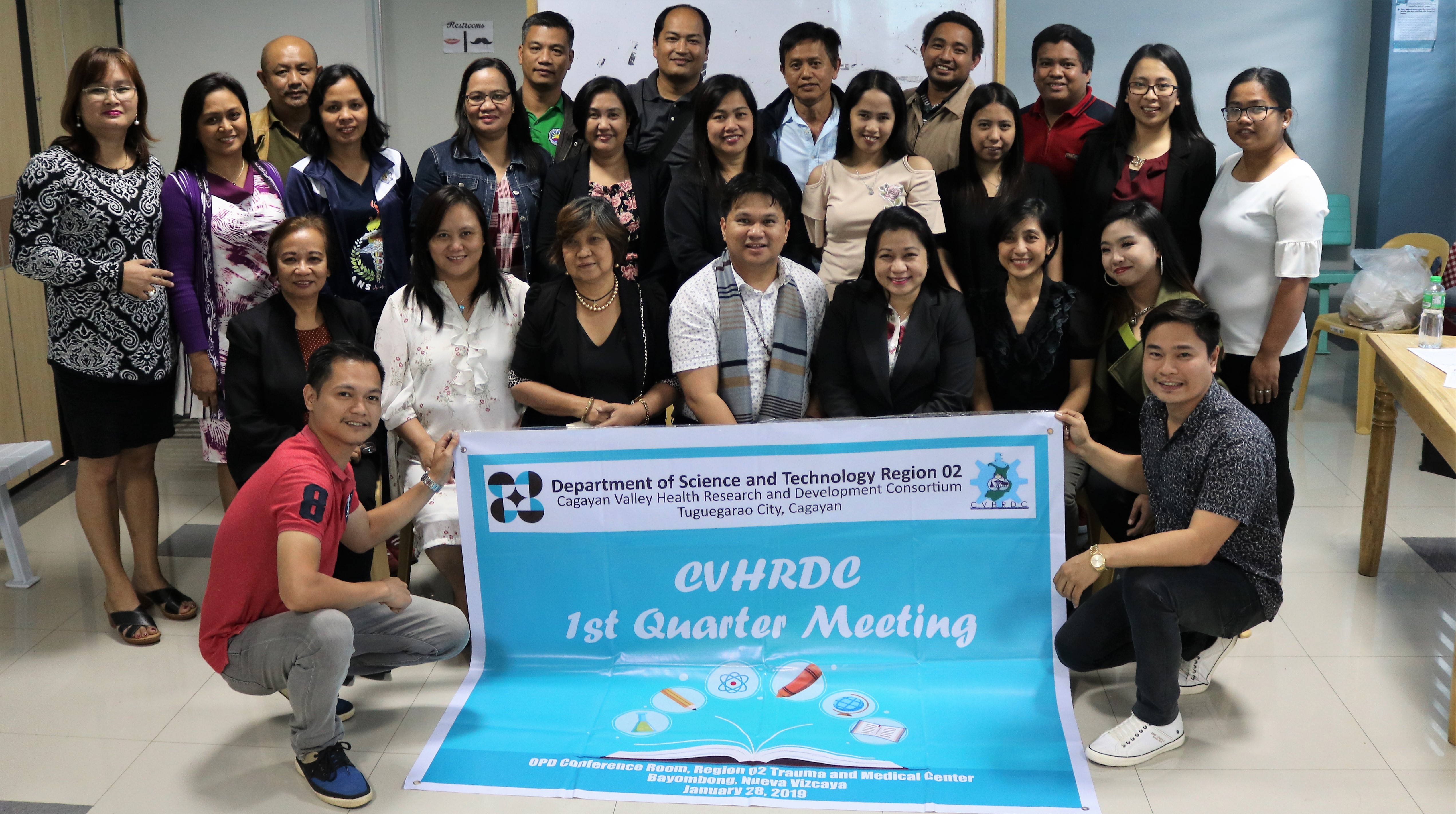
The Cagayan Valley Health Research and Development Consortium (CVHRDC) in collaboration with the Region II Trauma and Medical Center (RIITMC) successfully conducted the first batch of the Basic Research Methods Training held at RIITMC, Bayombong, Nueva Vizcaya, January 28-31, 2019.
The three-day activity aimed to refresh and strengthen the knowledge of the participants on foundations of good health research as well as to capacitate them to conduct more complex researches significant to the enhancement of health and health-related services in the region.
Said event was spearheaded by the BRM Core Team, Dean, CSU-CAHS and CVHRDC Executive Director, Dr. Julius T. Capili, Faculty, QSU and CVHRDC-Research Management Committee and Technical Review Board Chairperson, Dr. Melfei E. Bungihan, and Faculty, CSU-Andrews, Prof. Hilaria M. Barsabal.
The activity was attended by 45 participants from the Nueva Vizcaya and Quirino cluster namely: Region II Trauma and Medical Center (RIITMC),Nueva Vizcaya Provincial Hospital (NVPH) Nueva Vizcaya State University (NVSU), Quirino State University (QSU), St. Mary’s University ( SMU), Aldersgate College (AC) and Philippine Association of Medical Technologist (PAMET) Nueva Vizcaya Chapter.
Meanwhile, participants were also tasked to present their capsule proposal to the core team for critiquing and coached them to enhance their capsule research proposals. With this, the consortium expects to receive more capsule proposals ready for evaluation and funding coming from said participants.









